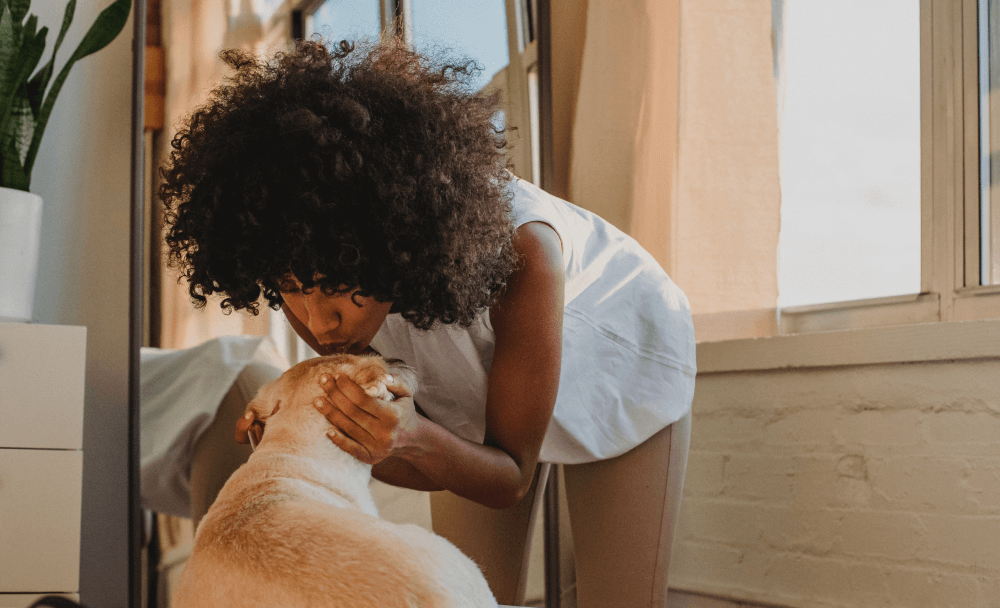When vaccinating young puppies, it’s crucial to ensure the final distemper virus/parvovirus vaccine is given at or after 16 weeks of age. This timing is important due to the relatively high rate of parvovirus in many communities and declining levels of protection from maternal antibodies. While it’s unclear exactly when maternal antibodies diminish, it typically occurs between 8 and 16 weeks. Our recommended vaccine schedule is:
What to expect At Your First Visit
Vaccines
When vaccinating young puppies, it’s crucial to ensure the final distemper virus/parvovirus vaccine is given at or after 16 weeks of age. This timing is important due to the relatively high rate of parvovirus in many communities and declining levels of protection from maternal antibodies. While it’s unclear exactly when maternal antibodies diminish, it typically occurs between 8 and 16 weeks. Our recommended vaccine schedule is:
- 8 weeks of age: Distemper virus/parvovirus
- 12 weeks of age: Distemper virus/parvovirus and oral bordetella (kennel cough vaccine, effective for 1 year)
- 16 weeks of age: Distemper virus/parvovirus and rabies vaccine (both effective for 1 year)
Vaccine schedules can be modified based on previous vaccinations. The timing of the final vaccine is more important than the total number of vaccines given. We recommend administering vaccines every 4 weeks to minimize parvovirus risk.
Importance of Fecal Samping & Deworming
At the first appointment, we recommend deworming with a broad-spectrum dewormer (pyrantel) to treat various intestinal parasites. Many mother dogs shed parasites through feces or milk during the stress of birth and nursing. This doesn’t indicate an unclean environment but rather demonstrates parasites’ ability to survive in otherwise clean conditions.
Since pyrantel doesn’t treat all parasites, we recommend submitting a stool sample to check for other parasites, particularly single-celled organisms like Giardia or coccidia. Please bring a fresh stool sample to your appointment for laboratory testing.
Diets
Puppy nutrition is crucial for proper development, especially for large and giant breeds (adult weighing over 50 pounds). Many companies offer large-breed puppy foods specifically formulated for appropriate bone and muscle development.
Recent studies have raised concerns about BEG diets (boutique, exotic, and grain-free), linking them to dilated cardiomyopathy, a serious heart condition. We recommend feeding diets that have passed AAFCO feeding trials for growth, such as major veterinary-recommended brands. Each company offers a variety for different-sized puppies.
Training tip: Consider using plain Cheerios as training treats – they’re low in calories and well-tolerated by dogs of all ages.
Housebreaking
- Schedule potty breaks every 1-2 hours, especially 20 minutes after eating, drinking, napping, or playing
- Maintain constant supervision or appropriate confinement
- Provide immediate praise and treats after elimination (bring treats outside)
- For accidents in progress, use a quick “no” and move them to an appropriate spot
- Clean up discovered accidents without scolding, as puppies won’t understand delayed correction
Crate Training
Crate training provides a safe space for your puppy and aids in housebreaking. It helps them adjust to confined spaces, which is beneficial if they ever need veterinary hospitalization. While not all dogs will need permanent crate confinement, early training is valuable.
Socialization
Puppies benefit from proper socialization, with the critical period ending around 13-14 weeks. While this coincides with high parvovirus risk, studies show that properly managed socialization classes don’t increase this risk. Look for classes requiring initial vaccines and negative fecal exams.
Insurance
Consider pet insurance while your puppy is young and healthy, as pre-existing conditions aren’t covered. Most companies require owners to pay veterinary costs upfront and submit claims for reimbursement, though some offer direct payment options. Ask about available trial periods with various insurance providers.
Remember to discuss any concerns or questions with your veterinarian during your first visit. We’re here to help you make the best decisions for your new puppy!
